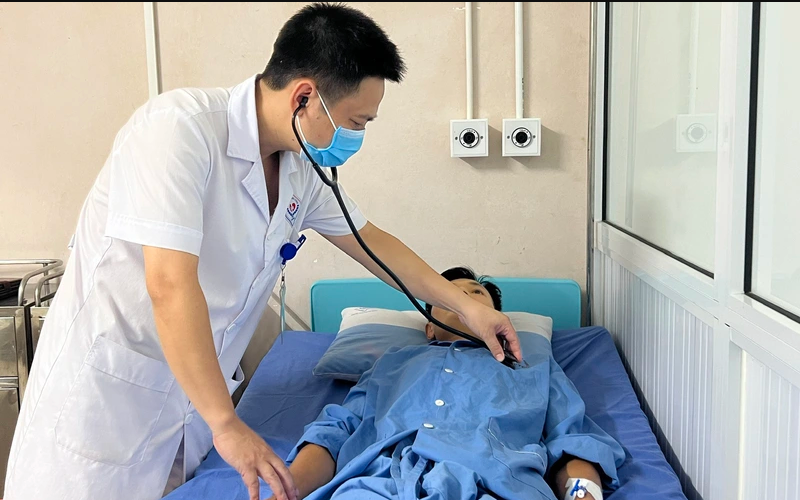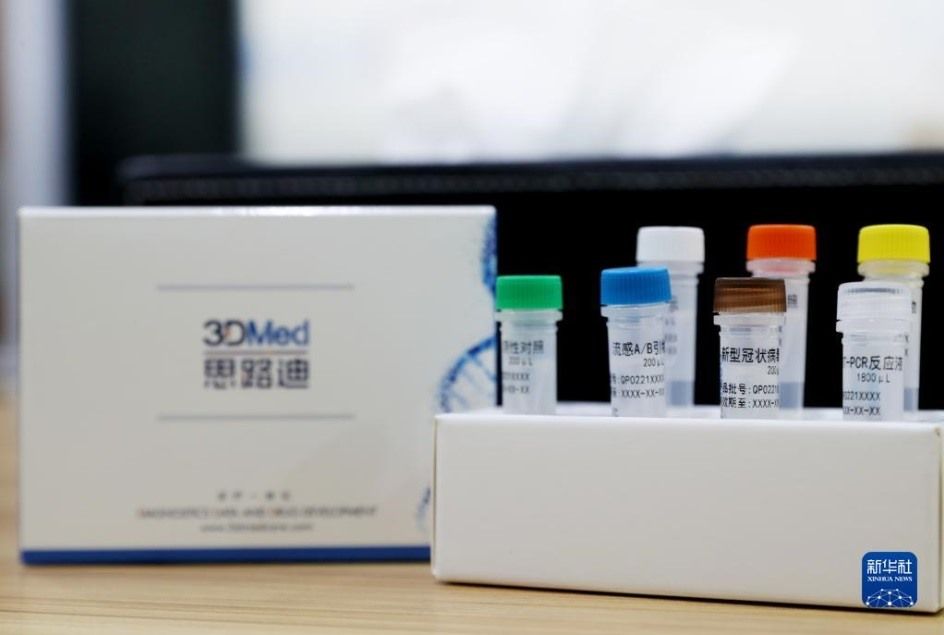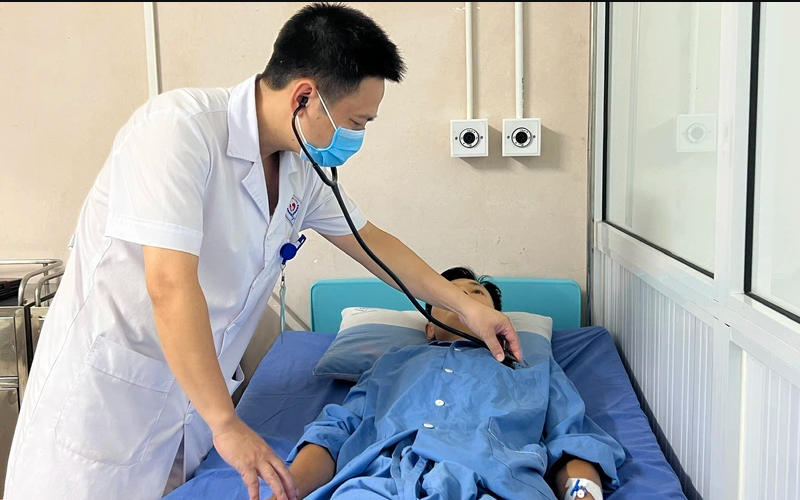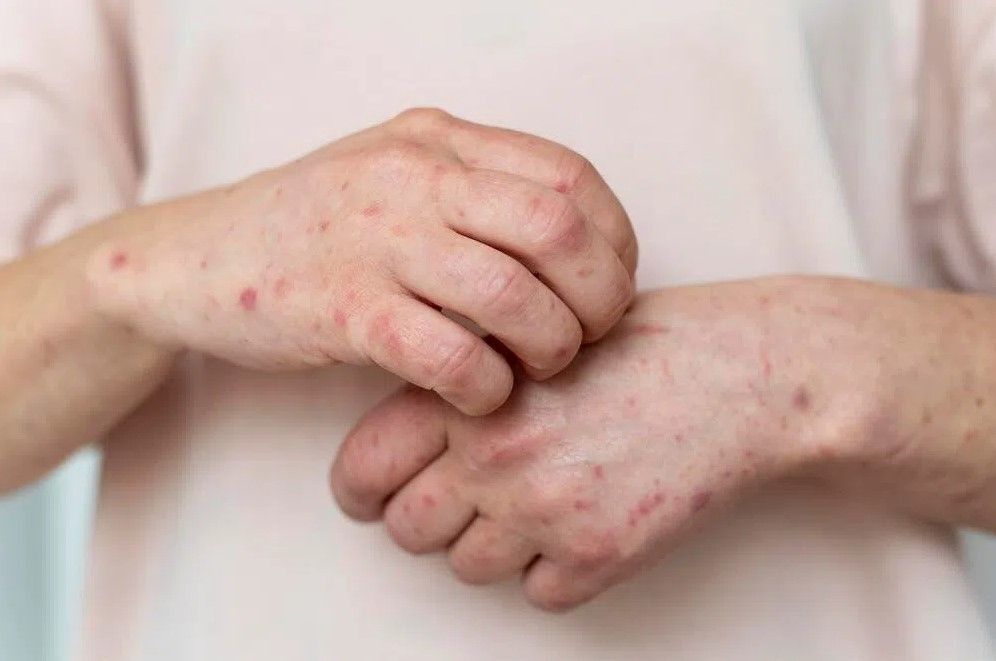Acute kidney injury, liver failure due to Leptospira infection
- Thai Nguyen Central Hospital has successfully treated a male patient with acute kidney injury and acute liver failure due to Leptospira infection.

PVT patient (residing in Dinh Hoa, Thai Nguyen) was transferred from Dinh Hoa District General Hospital in a state of fever, dizziness, itchy skin papules all over the body, sores around the mouth, and dull chest pain.
According to family members, 7 days before entering the hospital, the patient and his friend went to a waterfall. After returning home, the patient developed fever, rash all over the body, had loose stools many times and used male medicine for 1 day of unknown origin to self-treat. When vomiting a lot, urinating less, the patient goes to the hospital.
At Dinh Hoa District General Hospital, the patient was diagnosed with acute renal failure, was given intravenous fluids, urinary catheter, and anti-acidosis, but his condition did not improve, so he was transferred to Thai Nguyen Central Hospital for treatment.
At the Department of Endocrinology, Urology and Dialysis, Thai Nguyen Central Hospital, the patient was given the necessary tests. The results are many times higher than the average person. Doctors performed medical treatment and emergency dialysis for the patient.
According to initial assessment, the patient responded well. After dialysis, the indicators improved markedly, the patient urinated a lot (over 4 liters/day), continued to be given antibiotics, fluids, and nutritional compensation.
However, during the treatment, the doctors noticed that the patient's body had typical manifestations of a type of bacteria causing liver and kidney damage, such as fever, yellow skin, yellow eyes, and damaged tests. liver function, kidney function and especially have an epidemiological history of hanging out at waterfalls. After discussing with family members and conducting more tests for bacteria and viruses, the patient's results were positive for Leptospira.
MSc Do Van Tung - Deputy Head of the Department of Endocrinology, Urology and Dialysis said: Leptospira is the cause of Leptospirosis, which often parasitizes livestock, poultry and contaminated water sources. Infection usually infects humans through mucosal lesions. When living in the human body, in the early stages, the patient has symptoms of fever, muscle pain, fatigue, cough, and runny nose. To the more severe stage (from the 6th day), if not detected and treated promptly, it will cause serious damage to the liver, kidneys, pneumonia and meningitis.
For patient T., when a spirochete infection was detected, the doctors carried out the correct treatment regimen using specific antibiotics, supportive treatment of dialysis, liver tonics, and nutritional enhancement. After 1 week of active treatment, the patient recovered, eating well, the indicators of liver and kidney function recovery improved significantly, the patient did not need dialysis.
Through the case of the above patient, doctors recommend that people need to manage livestock, avoid discharge of urine and feces directly into ponds and lakes to pollute water, vaccinate livestock against diseases, and monitor diseases in livestock. . Use labor protection for high-risk people such as gloves, boots, swimming goggles, etc. Do not bathe in ponds, lakes, rivers and streams. Vaccinate against Leptospira disease, use prophylactic antibiotics exactly as indicated for those suspected of being infected when there is an epidemic.









 Facebook
Facebook
 Tweet
Tweet
 Zalo
Zalo







 News
News

















 Sign in with Facebook
Sign in with Facebook
 Sign in with Google
Sign in with Google